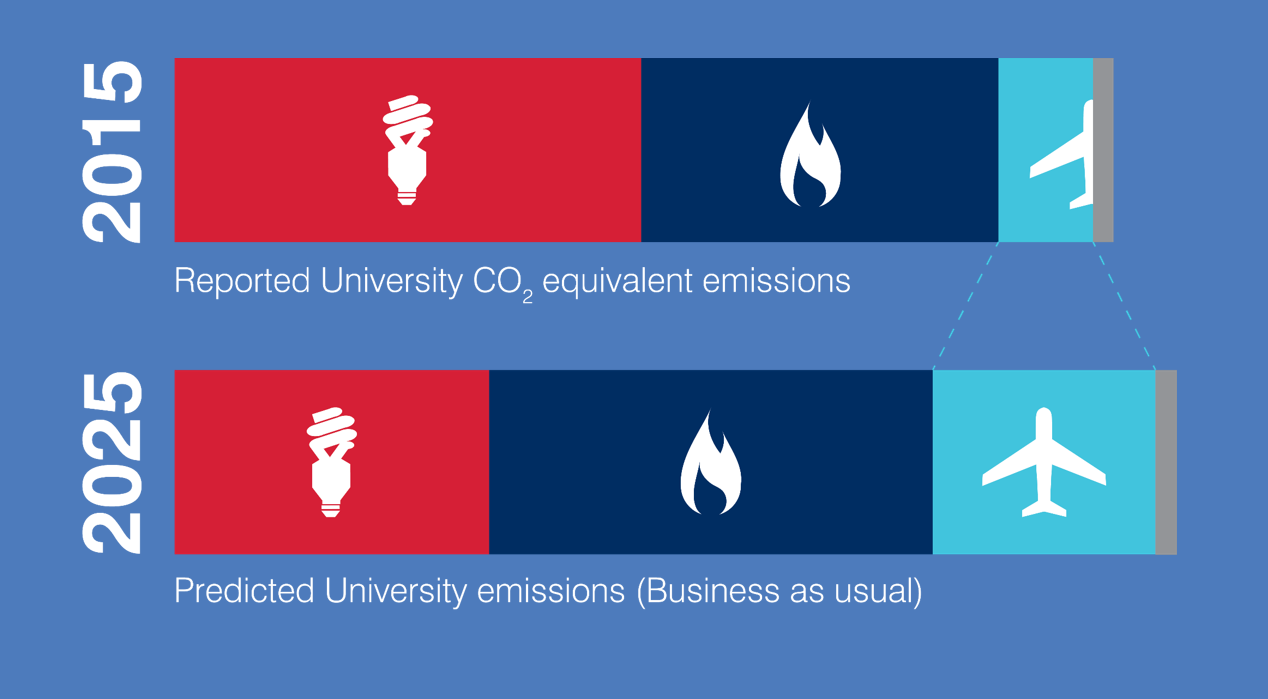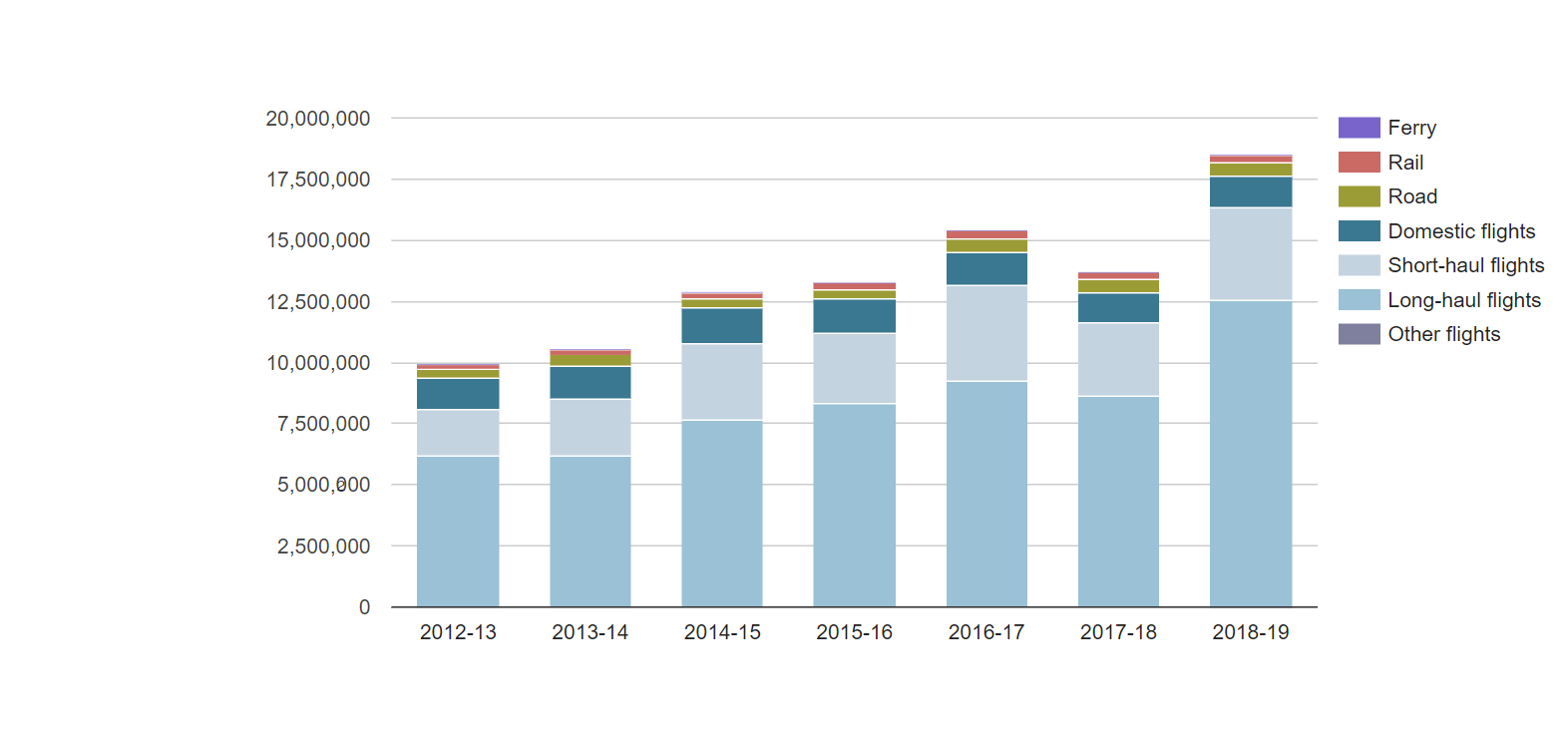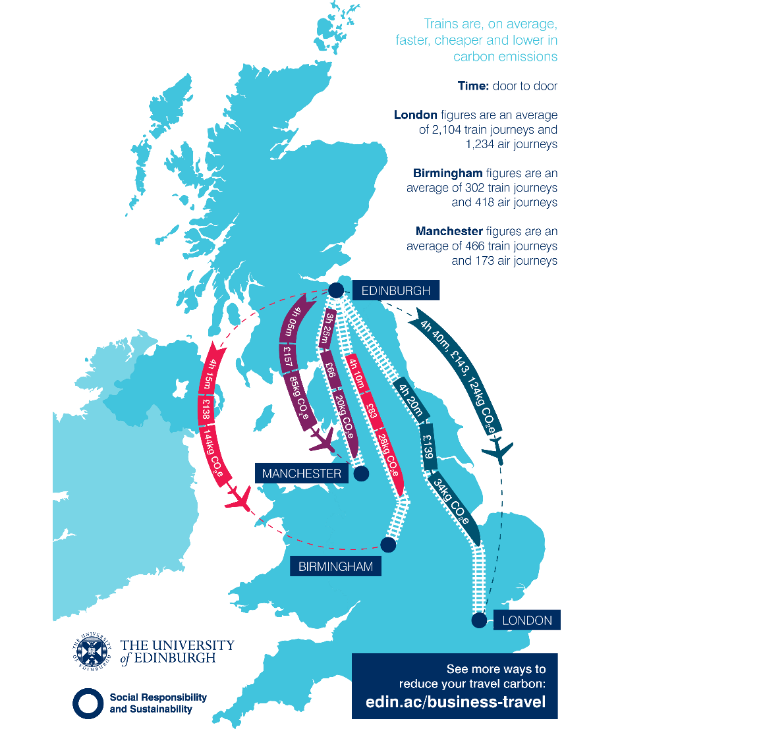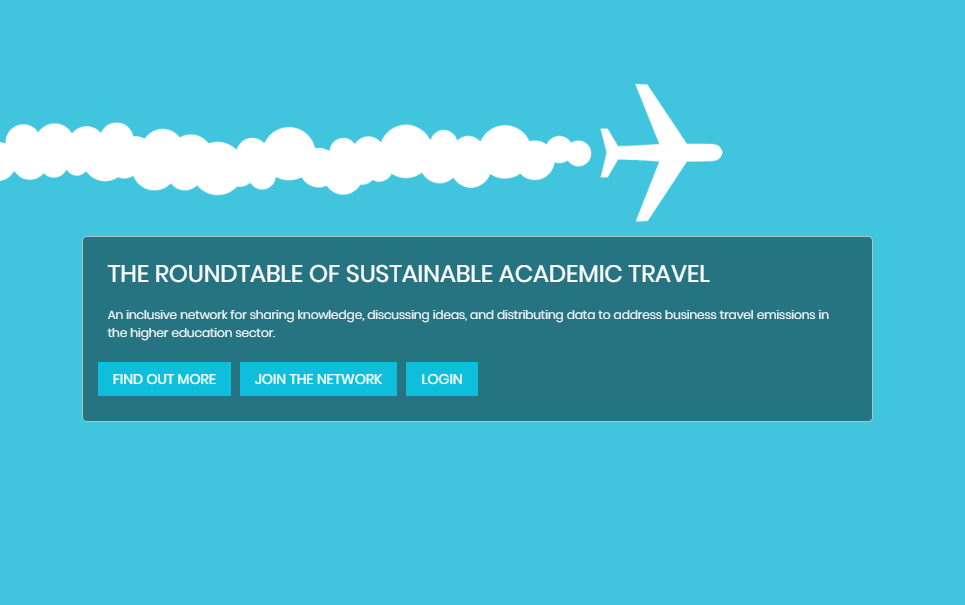SFC news published since 2018. See SFC archived content for earlier news articles.
This weekend for Earth Hour Siôn Pickering writes about the need for Universities to cut back on emissions through reduction in business travel.

The University of Edinburgh: carbon neutral by 2040
The University of Edinburgh is a world-leading, research-intensive institution, and our core purpose is to address tomorrow’s greatest challenges. Human driven climate change is one of these challenges, and something that we’re tackling both through our research and also through our relationships with other academic institutions.
Travel, particularly international travel, is an important tool for us: it enables us to carry out research; facilitates knowledge-sharing with partnerships world-wide; provides a means for our teaching, research and innovation to reach a global audience; and allows our students and staff to attend opportunities abroad. Unfortunately, most forms of travel involve releasing carbon emissions, with flights being one of the most carbon intensive. Carbon emissions from business travel are the third-biggest, and fastest growing, area in the University’s carbon footprint: we experienced a 37% increase in carbon emissions from flights between the academic years 2017-18 and 2018-19, 94% of which were released by flights.
Since 2016, we have actively been trying to reduce this. That year, we published our climate strategy – Zero by 2040 – which outlined our bold approach to reducing carbon emissions from a range of sources including the gas and electricity used in our buildings and estate, as well as from the vehicles we own. While we’re on track to achieving our net zero carbon target across our estate, we now need to address the rising carbon emissions associated with business travel; and – crucially – do so in a way that does not negatively impact on our research, teaching and collaborations.

Carbon emissions from University business travel are expected to grow rapidly under a “business as usual” model to 2025.
Implementing a Climate Conscious Travel approach
For the University of Edinburgh we are saying that it is not about completely stopping all travel. This would be unrealistic and would likely have a negative effect on what the University is trying to achieve. Instead we are instilling the concept of Climate Conscious Travel.
Climate Conscious Travel is about increasing travellers’ awareness of the environmental impacts of travel, ensuring unnecessary travel does not take place, increasing the use of low-carbon modes of transport when travel must take place, and sequestering any remaining carbon.
Understanding our data
This is clearly not a straight-forward change, and we have been working on this challenge for a number of years. We started by providing accurate, informative data on our travel by building an interactive reporting tool. This tool has been useful in discussing the topic with a number of interested individuals, schools, and departments. Through the reporting tool we can see that, since 2012, our staff and students have travelled more frequently, travelled further, and spent more money travelling. Further analysis of this data shows that this is not just because we have grown as a University. These figures have all grown per FTE staff numbers.

Our dedicated business travel reporting tool shows that carbon emissions from business travel are growing at a significant rate within the University. See the full report at: edin.ac/business-travel-report
Understanding travellers’ behaviours
Providing the data has led to a number of detailed focus groups with staff and students to better understand why this travel is taking place. From this research, one thing is clear – Academia necessitates travel. There is a fear that, should individuals not travel, it will impact on their research, slow down their careers, and reduce their future job prospects. This fear is not without merit, look at existing criteria for promotion or for research grants across the sector which often specify international reach as a core component.
Consulting on our proposals
The next step in our project has been to put forward actions that will reduce our travel, without impacting on the success of the University. These measures include replacing journeys with virtual collaboration tools, adopting flight free travel within the UK, and improving access to tools that allow travellers to make more informed choices.

Providing accurate information to travellers on alternatives to travel is a key part of our work to implementing Climate Conscious Travel at the University.
We believe that, by reducing travel overall, not only will there be little negative impact on the University, there could also be some positives. Less travel means improving productivity and decreasing travel costs, freeing up time for other aspects of work and home. A working group has been setup to look at how best to instigate Climate Conscious Travel across the University. We are hopeful that the working groups’ proposals to the University Executive, due by the summer, will be actioned by the end of 2020.
A sector-wide concern
However, even if we succeed in changing travel behaviours at the University of Edinburgh, we are well aware that internationalisation is a core function across the Higher Education sector. Speaking to other institutions, we know that carbon emissions from business travel are a concern across the sector.
We took a leading role in opening up a discussion with other institutions. The Roundtable of Sustainable Academic Travel brings together over 90 global institutions who are looking to address travel in higher education. Sharing knowledge, data, and ideas. Bringing about collaboration. Most member institutions have started to understand the scale of the challenge ahead. Some are a step or two further along this journey, and have initiated localised pilot projects which aim to influence travel behaviours.

The Roundtable of Sustainable Academic Travel is bringing a number of global institutions together to address business travel within the sector. To date, over 90 institutions are registered with the network.
This sector-wide collaboration is useful for a number of reasons. For example when arranging joint meetings. Currently a meeting might be scheduled to take place in London at 9am (which is not possible to attend by train from Edinburgh without an overnight stay). By working collaboratively we could look at how the host institute might adapt their policy to state that such meetings do not start before 10am. Such a policy could be reciprocal so that those travelling for similar events in Edinburgh could also travel by train.
Conferences are another major reason for travel in higher education. How do you measure the direct and indirect benefits of attending a conference? Technology has improved dramatically in the last decade.
Many staff and students are comfortable using a range of technologies in their personal lives. How can we utilise this skillset when looking at professional communication? Should event organisers make attending virtually more available? Should host institutes fund development of tools for this purpose? Not only would increasing virtual attendance at events reduce emissions, it may open up events to those who are unable to travel – be it due to disability, caring responsibilities, because they cannot get a visa for the host country, or because they cannot afford to travel. Such accessibility has the potential to greatly increase the breadth of knowledge shared, one of the core outputs of an academic conference.
Next steps
Not all emissions from travel can be removed. The final step then is to consider sequestering these emissions. Anyone familiar with the topic of sequestering will understand what a complex topic this has become. How does an institution ensure that any chosen scheme for the most suitable for the organisations existing needs? How will this be monitored into the future? Again, the University of Edinburgh is looking at the best solution for our own needs.
It is clear that we have not yet completely solved the thorny issue of carbon emissions from higher education business travel. I think the University of Edinburgh is a few steps closer to addressing some of these emissions, but it is not a goal we can achieve alone. Working together will be key, both internally – with our staff, students, and visitors, as well externally – with other institutions, research funders, and other associated organisations.
If you work in academia and wish to understand how to make travel more sustainable at your institution, join our Roundtable of Sustainable Academic Travel.


